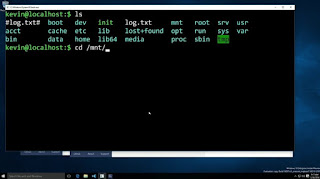Free Basics: and internet political battles - "TechnoTron"
Free Basics
Why should the countries of Latin America pay attention to the discussion in India of the emblematic project of Facebook?
INTERNET, BATTLES POLITICAL, FACEBOOK, WHATSAPP
Currently, the service works like this: Facebook is associated with local internet providers and offers an application that people can get at their - not necessarily smart - phones and then obtain access to certain online services (which include Facebook and Whatsapp, more others which vary in each country), without spending their data plans. For Zuckerberg, Free Basics is the impulse that poor people need to assess internet and decide to spend part of their monthly budget on a connection to the network.
But Zuckerberg faces one of the most moments of your project. At the beginning of December, 2015, the regulatory authority of the telecommunications of India (TRAI) instructed the ISP Reliance Communications - partner of Facebook to offer Free Basics - temporarily suspend the service in the country. The reason is due to a long controversy about whether should be permitted to a telecommunications operator have prices differentiated for different types of content. Until that is resolved,not only the service was temporarily suspended, but that the TRAI was opened for comments from interested parties to the last document, dealing with precisely this matter.
The battle broke out there.
On the one hand, with a campaign to discredit the opinion of opposition activists,Facebook has committed enormous resources to replete advertising in favor of Free Basics the streets, the media and his own platform. On the other hand, an important sector of civil society, academia and private are gathered under the Save The Internet Coalition to raise opposition to the emblem of Zuckerberg.
So far, an important part of the arguments around the Free Basics discussion and,in general, about services known as zero-rating, both in India and in other countries, are focused on whether the network neutrality is a principle real and desirable online and if that - in their existence - could have exceptions. Closely related to this,it is debated whether the network neutrality is a barrier or a guarantee of access to the internet and, more specifically, if it is convenient - economically and politically - that are Facebook and a handful of businesses decide which applications are part of a free internet and what not.
But with the discussion in India remains in evidence that a purely technical approach is not sufficient if the different dimensions of power that cross the debate are not considered.
And is that, apart from the discussion about the neutrality of the network and access, there is discomfort for how Facebook has carried out the project Free Basics indifferent countries of the third world. On the one hand, with little or no local participation. And, related to this, ready recipe from the first world of what is the internet the third world deserves, as if white and wealthy men of Silicon Valley knew better what - our countries - developing countries need.
Before the political criticism, Facebook has responded aggressively. To its supporters, claims only respond to a sort of anti-Americanism in the country. In fact, Zuckerberg wrote an editorial in India and termed "false claims" the counter-arguments to Free Basics, which earned him the answer, with some sarcasm, of Quartz India titled: "Mark Zuckerberg can't believe that India is not grateful for Facebook free Internet".
The reaction of Free Basics included a campaign that, among other offline resources, has as axis own Facebook platform. As thousands of activists and organizations around the world every day using Facebook to publicize their advocacy campaigns, this time the owner of the service decided to also occupy it for those purposes. There would be nothing wrong with that if it were not for accusations that denounce the barriers imposed by the company to counter campaign, Save The Internet,in addition to other charges.
It's troubling allegations about the handling of the local public opinion. However, the fact again demonstrates that the battle of Free Basics exceeds the net neutrality debate and puts light on another worrying political dimension in discussions of rights on the internet: the power of the algorithm.
INTERNET, BATTLES POLITICAL, FACEBOOK, WHATSAPP

Comments
Post a Comment